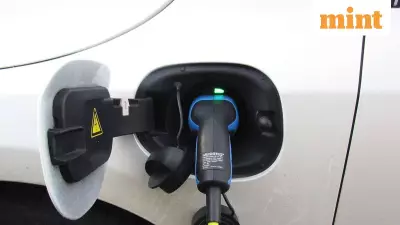
India is poised to establish a completely domestic solar manufacturing supply chain within the next two to three years, according to ReNew CEO Sumant Sinha. In an exclusive interview with DH's SNV Sudhir on November 16, 2025, the renewable energy leader outlined this ambitious timeline and his company's future plans.
The Path to Solar Self-Reliance
Sumant Sinha expressed strong confidence in India's ability to build an end-to-end solar manufacturing ecosystem entirely within the country. The ReNew CEO emphasized that this transformation would occur within a remarkably short timeframe of just two to three years, marking a significant milestone in India's renewable energy journey.
This development represents a crucial step toward reducing India's dependence on imported solar components, particularly from China. The domestic manufacturing chain would encompass all critical stages of solar panel production, from raw material processing to finished module assembly.
ReNew's Strategic Expansion Plans
During the detailed conversation with SNV Sudhir, Sinha laid out ReNew's comprehensive strategy to capitalize on this emerging opportunity. The company is positioning itself to play a leading role in India's solar manufacturing revolution while continuing to expand its renewable energy generation capacity.
The interview revealed that ReNew has been actively working on vertical integration strategies to secure its position in the evolving solar value chain. This approach aligns with the Indian government's Production Linked Incentive (PLI) scheme and other initiatives designed to boost domestic manufacturing capabilities.
Broader Implications for Indian Energy Sector
The establishment of a fully domestic solar manufacturing chain carries profound implications for India's energy security and economic growth. It would create thousands of manufacturing jobs, reduce foreign exchange outflows, and make India less vulnerable to global supply chain disruptions.
Sinha's prediction comes at a critical juncture in India's renewable energy transition, with the country targeting 500 GW of renewable energy capacity by 2030. A robust domestic manufacturing base would ensure a reliable supply of solar components to support this massive expansion while potentially positioning India as a global solar exporter.
The ReNew CEO's optimistic assessment suggests that India's solar industry is rapidly maturing and could soon compete with established manufacturing hubs worldwide. This development would significantly strengthen India's position in global climate negotiations and clean technology markets.





